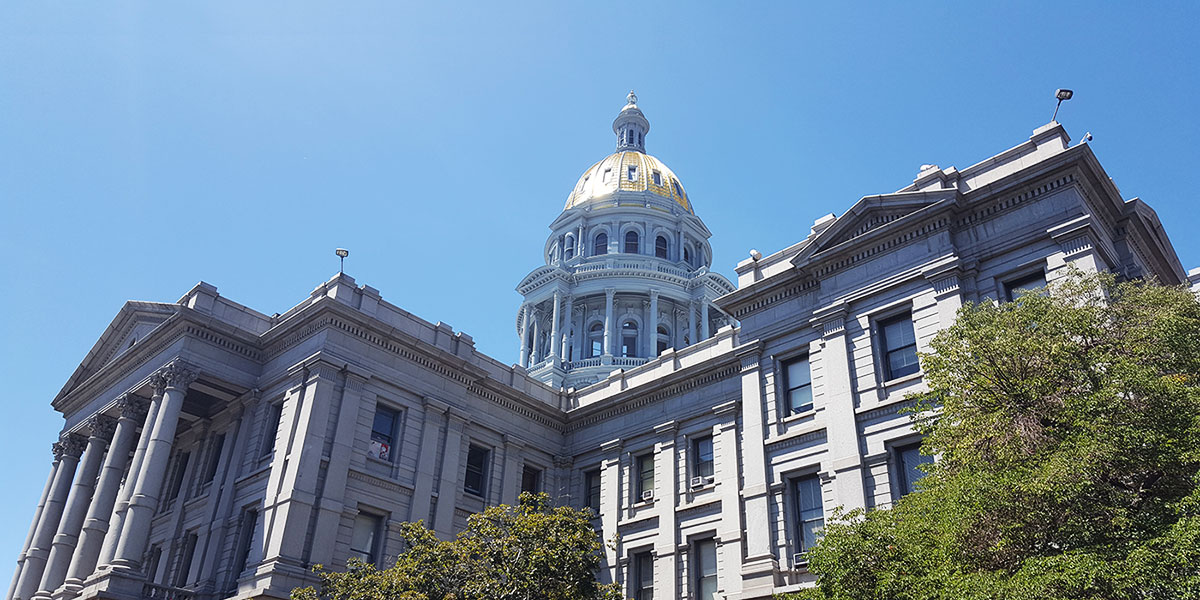In response to the pandemic–induced budget crisis, a coalition of progressive groups is calling on Colorado legislators to pass a temporary emergency tax increase on people who make more than $250,000 per year.
At the same time, taxes would go down slightly for 95% of Coloradans.
Advocates of this approach say the $600 million raised via the changes to Colorado’s tax brackets would help lawmakers address the $3.3 billion in state funding for education, health care, and other critical public services that are at risk due to the economic impacts of the pandemic.
“Simply put, important institutions that serve Coloradans and create jobs – such as rural hospitals health clinics, mental health clinics, schools, and universities – are facing significant reductions in services and massive lay-offs,” said Linda Reiner, President of the Caring for Colorado Foundation, one of 135 organizations encouraging legislators to consider the approach. “We need to come together as Coloradans to save these vital community organizations to preserve the health and well-being of our families, friends, and neighbors. Without this stop-gap measure we will be forced to endure more job loss, hunger, housing insecurity, problems accessing health care, and family stress.”
The coalition delivered a joint letter to lawmakers advocating for a three-pronged approach, which includes the passage of a temporary state tax as well as the use of federal funds and some adjustments in state budget priorities. The legislature will reconvene its 2020 session on May 26.
To advance the tax proposal, which proponents say is allowed under the constitutional limitation of the Taxpayers’ Bill of Rights (TABOR), lawmakers must pass a joint resolution declaring a health emergency, and approve the temporary tax measure in both the House and Senate by a two-thirds vote.
House Republican leader Patrick Neville says the chanced of this happening are one in a billion, according to a Colorado Channel report. It would require GOP support.
“An emergency tax that creates income brackets with increasing tax rates could raise enough revenue to help prevent the worst of the budget cuts while reducing taxes on low and middle-income Coloradans so they can better meet their needs, spend money locally, and drive the recovery of our economy,” states the letter. “If there was ever a time to use the emergency tax contemplated in our constitution, it is now. “
The coalition, which includes 135 organizations, argues that, when combined with emergency services and federal aid, severe budgetary cuts could be avoided.
“This proposal gives relief to Coloradans who need it most while giving those with the most resources a short-term opportunity to pay it forward for the good of the state,” said Carol Hedges, Director of the Colorado Fiscal Institute, which analyzes fiscal and economic issues facing Colorado. “Health care and education are important services we all need more than ever, and those services are provided by Coloradans. When hospitals and colleges close, when school districts need to lay off teachers and support staff, it means fewer jobs and less money flowing in communities that can’t afford more unemployment. This proposal will help local economies so we can all recover and none of our communities are left behind.”
Another coalition member group, the Colorado Children’s Campaign, released a brief video explaining the proposal:
The burden on high-income earners would be tolerable, argue advocates of the tax.
“Legislators should pass a temporary graduated income tax that provides 95% of Coloradans with emergency relief through lower income taxes and asks households making above $250,000 to pay a little more,” wrote Adam Fox, Director of Strategic Engagement for the Colorado Consumer Health Initiative in an email alert today. “This will help those Coloradans struggling in this crisis while raising much-needed revenue.”




